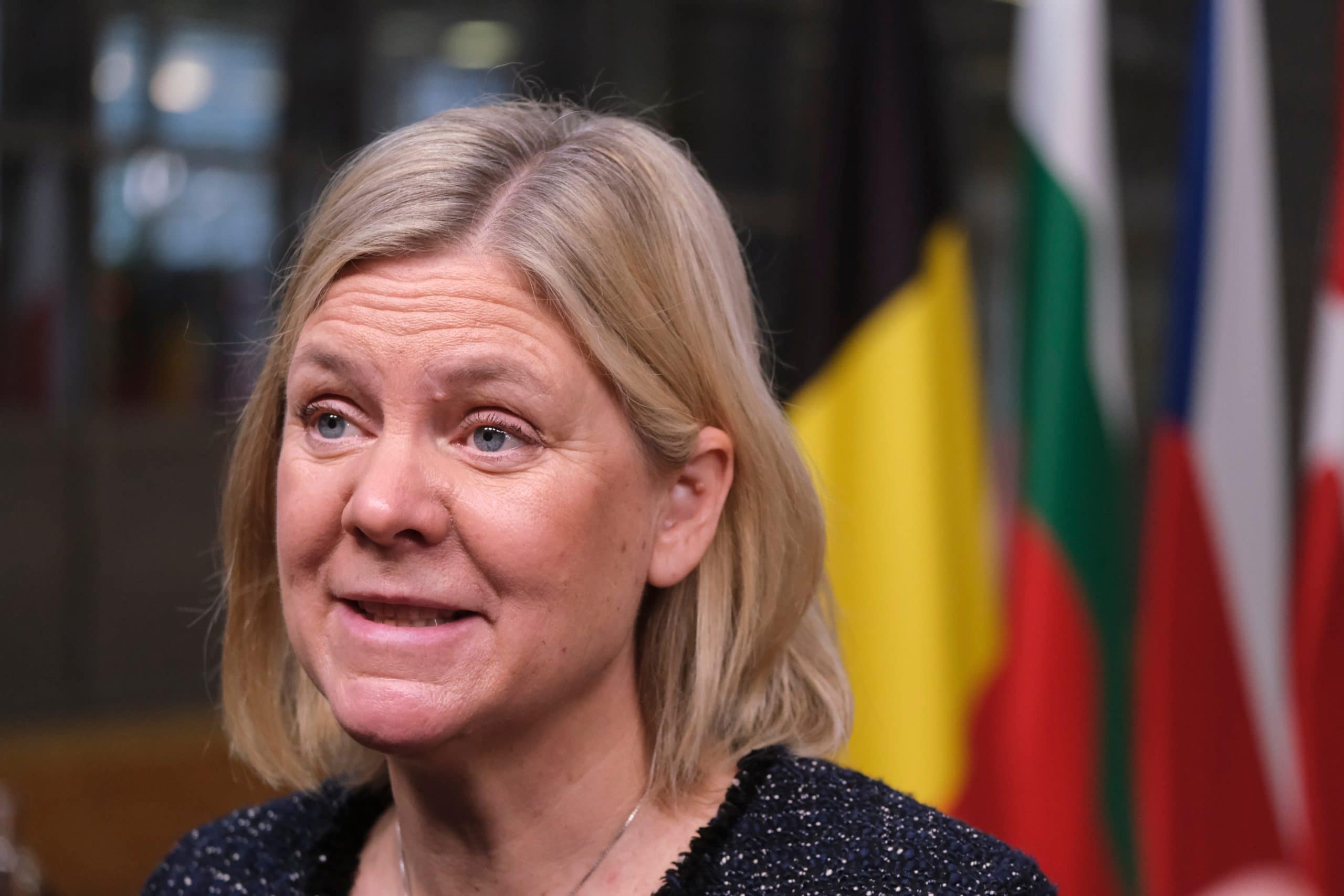
Following the lead of its Scandinavian neighbors whose governments have already scrapped vaccine passports and most coronavirus-related restrictions, Sweden—presently ruled by a one-party Social Democratic minority government—has announced that it too will begin lifting COVID-19 measures next week.
While speaking with members of the press on Thursday, Swedish Prime Minister Magdalena Andersson (SAP) announced that her government would begin lifting COVID-19 restrictions next week, making Sweden the latest country to depart from draconian lockdowns—and bringing it in line with Denmark, Norway, and Finland, all of whom announced similar plans this week, the Stockholm-based Expressen reports.
“It’s starting to be time to open up Sweden again. The pandemic is not over but on its way into a whole new phase,” the prime minister said, noting that the decision to ditch restrictions was prompted by an improved understanding of the Omicron variant of COVID-19, a less strained healthcare system, and the country’s high vaccination rate, which is among the highest in the world at around 73%.
“There are now several international studies that [the Omicron variant] causes milder disease,” Ms. Anderrson said, adding that consequently, the Swedish Public Health Agency—which no longer regards COVID-19 as a “socially critical disease”—has assessed that it can “cope with a situation where vaccinated people gradually return to a more normal life every day.”
Among the restrictions set to be dumped next week, on the 9th of February, is the internal system of vaccine certificates, restrictions on the number of participants attending public events, compulsory mask-wearing on public transportation, as well as government recommendations to limit social contact. Additionally, the government requested employers to prepare for a return to in-person work, although the transition from at-home work shouldn’t take place too quickly, according to senior officials.
For the time being, the government continues to advise the unvaccinated to avoid large crowds and asks those who develop symptoms to stay home.
Magnus Gisslén, a professor of infectious diseases at the University of Gothenburg, has welcomed the government’s decision to abolish restrictions, saying in an interview with SVT: “It was an expected decision and at the same time well balanced. It is good that this message is coming now, there is very little evidence that we will return to such a situation as we had before.”
On Thursday, when asked whether the situation could change due to new variants that may arise in the future, Karin Tegmark Wisell, Director General of the Swedish Public Health Agency answered in the affirmative, saying: “We absolutely see that there may be further mutations, but we also have a situation with a vaccination platform in place and tools to deal with a changed virus situation. This pandemic has constantly surprised us, but we have completely different tools now.”
In departing with its formerly held pandemic policies, Sweden joins its Scandinavian neighbors along with England, Ireland, and the Netherlands—all of whom have done the same for the time being.
Meanwhile, the Austrian government, which has the most oppressive coronavirus regime in Europe, continues to press forward with its decision to impose mandatory vaccinations on its population, with President Alexander Van der Bellen signing the mandate into law on Friday.
At the same time, to the west in France, Health Minister Olivier Véran hinted during an interview with BMFTV that the government’s vaccine passport requirements could be abandoned before July, saying: “The worst is behind us. The vaccination pass will have to end, and given the current epidemic dynamics, it is likely that this will end well before July—unless there is bad news.”
“When we have emptied the intensive care units and made room for the patients who normally come under the resuscitation when there will be no more rescheduled care in our country, and if there are no new variants in circulation at that time, the usefulness of the vaccination pass will be totally questionable. And we can withdraw it,” he said.
